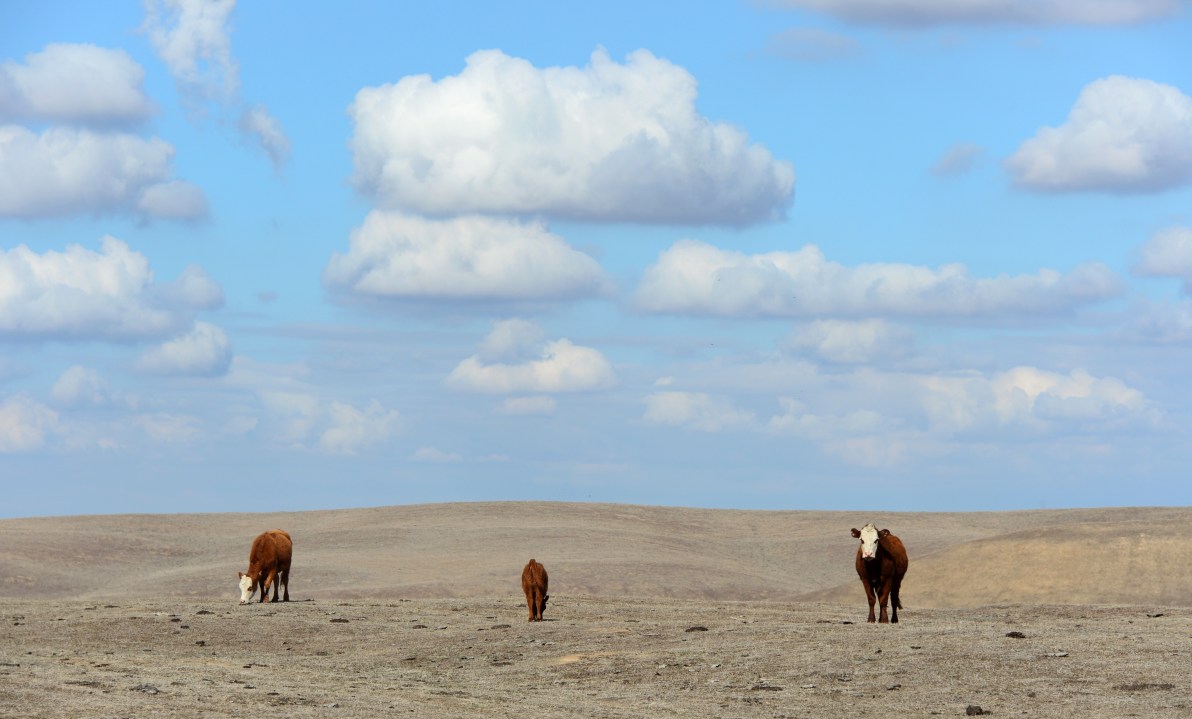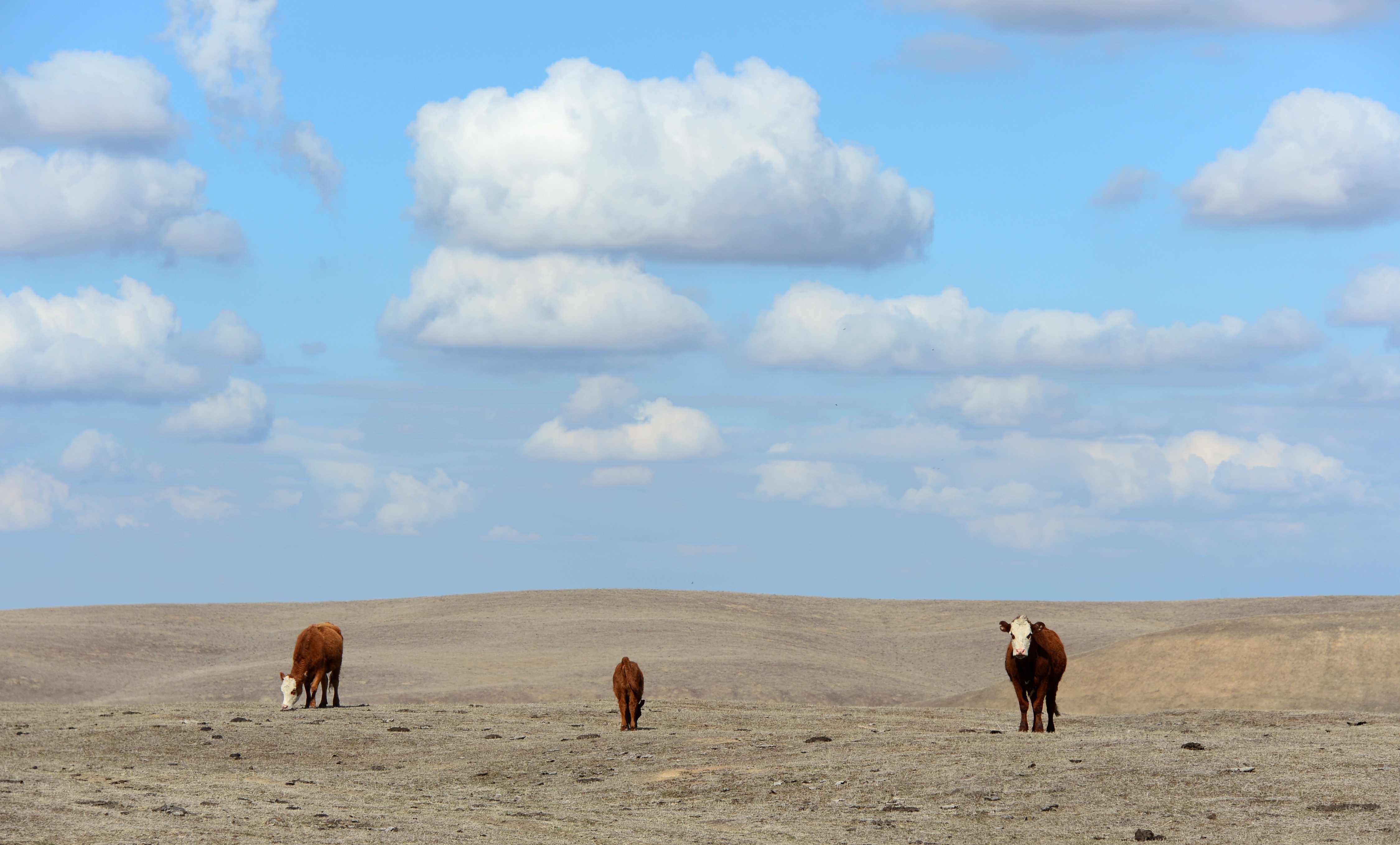‘Oh man, US farmers would never put up with all this crap!’ said the young American cowgirl. She was doing an internship on my farm last year and was shocked that we have to tag all our animals at birth and then record every antibiotic administered throughout their lives to ensure the complete traceability of British beef. I remember the look of incredulity on her face as I pointed out the grey hairs on my head caused by mislaid cow passports. This cultural difference between the two countries is partly why a US-UK trade deal isn’t straightforward.
Last month, parliament voted down an amendment to the Agriculture Bill, tabled by Neil Parish, the Conservative MP for Tiverton and Honiton, to safeguard food standards. The government argued that it was unnecessary as they had already committed to banning hormone-treated beef from entering the country. That swayed the majority of MPs – but the government is either being naïve or disingenuous. British farmers know that they will go on being chastised to keep very onerous records while beef produced without the same traceability enters the country. Whatever the assurances and supposed red lines, there simply aren’t the record-keeping systems on US farms or the controls in the supply chain to ensure that imported food is produced to the same standard.
Farming unions have been fighting a US trade deal using the wrong arguments
Despite being a farmer, and having reluctantly voted Remain, I have some sympathy with the frustration of politicians who want free trade deals around the world in order to reduce prices for consumers and create opportunities for exports. Many beef farmers also have sheep and can see the big opportunities for exporting lamb, partly because apart from Patagonia we have very few competitors. And I have been concerned that the farming unions have been fighting a US trade deal and using the wrong arguments to do so. Americans have not been dropping like flies from eating chlorine-washed chicken. Our unions have ignored the Prime Minister’s warning in his Greenwich speech that ‘we will not be fooled by mumbo jumbo’ and doubled down on weak arguments.
But there are huge problems to consider if we want to do this trade deal without destroying a large chunk of our agricultural base, and with it our landscape, environment and rural communities. To PPE graduates in the Tory party brought up on Adam Smith, protectionism is a dirty word. But they forget what we are trying to protect. In a poorly thought-out scenario, US meat, grown faster and cheaper with hard to detect hormones and GM feed, would undercut homegrown products and destroy British family farms. It would also seriously undermine the Union, since the effects would be felt disproportionately in Scotland and Wales. The SNP has been adept at developing a narrative of Tory betrayal and this will be a big issue in rural seats in next year’s Holyrood elections, which will see the SNP try to conflate ‘the betrayal of Scottish farmers’ with a mandate for an independence referendum.
Many farmers are already expecting the worst. On our farm, we have concluded that staying in beef is too big a risk post Brexit. Our suckler cows go this week to be replaced by a dairy. Those in the hills don’t have a choice. One friend is selling his cows and planting his hill farm with trees. He is laying off three men and will no longer be spending £600,000 each year on agricultural supplies in the local market towns. Moorland habitat, conserved for grazing livestock, will be lost, further endangering rare curlews and hen harriers.
If we are to do a US trade deal – and we should, not least to put us in a stronger position with the EU – we need a clear vision of how we will also sustain a viable British beef industry. We should start with labelling. Currently, meat can be labelled as British if it is packaged here. That needs to change. If farmers have to keep records that ensure full traceability, the birthplace of the animal needs to be on the supermarket label. We also need much clearer differentiation between British grass-fed beef and US feedlot soya-and-cereal-fed beef. They are completely different products. The former is much better for health, animal welfare and the environment than the latter. One undermines the reputation of the other. Our farming industry has been reluctant to differentiate between grass-fed and cereal-fed to avoid upsetting our big beef finishers, but they must now do so or they risk being blown away.
And we must create other conditions that will allow British farmers to compete on quality. One of the most destructive things about our time in the EU was the contraction of the food processing industry. There is no longer the network of small abattoirs to allow farmers to kill and butcher their animals and sell them locally. The industry is at the mercy of three big Irish processors who own 75 per cent of our meat processing capacity and can dictate terms in such a way that farmers actually have to pay a slaughter fee for cattle they have already sold. Competition needs to be restored. And we must do more to boost exports. The Chinese would love to eat more British beef. They want to build abattoirs in the UK. They should be allowed to. Whatever our quarrels with the Chinese at the moment, if we don’t sell them our meat there is only one loser.







Comments